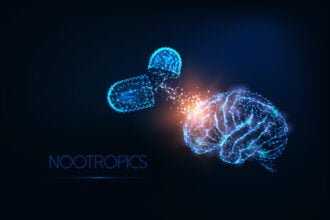Do you think dementia and Alzheimer’s disease are similar? This is a common misconception, but the truth is that they are not. They might have overlapping symptoms, but some factors differentiate them.
Dementia is a common term that defines an individual’s decline in mental ability. It is a very common disease that is diagnosed every three seconds. The disability is severe and interferes with daily life. It also impacts memory and communication.
Alzheimer’s is a common cause of dementia. The symptom gets worse and affects memory and thought. the CDC reports that 5.8 million Americans suffer from this disease.
Learning the differences between the two is essential for the patients and their families. You will have an easier time coming up with appropriate solutions if you know the differences.
The article discusses the difference between Alzheimer’s disease and dementia in detail.
Dementia vs Alzheimer’s
Dementia is a group of symptoms. It affects reasoning tasks such as the memory of an individual. It impacts the ability to function independently. Dementia occurs more with aging. Brain cell damage causes dementia. The cells affect cognitive and communication ability.
Dementia occurs due to several conditions. Alzheimer’s disease is a common dementia form. Your Dementia Therapist will help you understand the difference between the two.
Alzheimer’s is a deteriorating brain disorder. It results from complex brain changes and cell damage. It leads to dementia symptoms over time. People with Alzheimer’s disease find it challenging to remember new information.
It affects the brain’s part related to learning first. The highest risk factor for Alzheimer’s is age, but that is not the only one.
Causes
The exact cause of dementia is still not known. But age is one of the causes of dementia. As you age, your brain cells are damaged, which results in dementia. Loss of neurons and neuronal connections cause brain damage.
However, younger people also have dementia, but the symptoms could be less severe. Other known causes of dementia could be vascular diseases, HIV infections, and stroke. It also includes depression and long-term medication.
The exact cause of Alzheimer’s is also not known. Abnormal protein deposits in the brain called tangles and plaques cause the disease. Plaques are protein clusters that hinder communication between neurons. Tangles are types of proteins twisting together. These result in brain cells’ death.
Diagnosis
Dementia does not have a definite diagnosis. Practitioners identify it through symptoms that appear in an individual. Signs of dementia types like Parkinson’s disease and Lew bodies can help diagnosis.
Other types like vascular and frontotemporal dementia also help in diagnosis. Doctors use dementia screening, blood tests, medications, and symptoms review, and imaging scans.
Diagnosis of Alzheimer’s disease with complete accuracy is impossible. But examining the brain during an autopsy diagnoses the condition. But practitioners diagnose it most of the time by identifying the symptoms.
Symptoms
The main noticeable symptoms of dementia include –
- Forgetfulness
- Repeating the same thing
- Poor decision-making
- Behavioral changes
- Depression
- Confusion
- Incapability to detect difference in colors
- Communication and speech issues
- Lack of focus
Patients are unable to perform routine chores and track time in advanced stages. They find it difficult to remember familiar places and people.
Common symptoms of Alzheimer’s disease are –
- Focus issues
- Personality changes like mistrust of others and not caring for family members.
- Mood changes
- A problem in remembering names, conversations, and events
- Disorientation
- Difficulty in making changes
Advanced stages of Alzheimer’s show symptoms like difficulty swallowing, walking, and speaking. With time, the patient cannot do everyday tasks without support.
Treatment
There is no permanent cure for Alzheimer’s and other dementia types. Doctors mainly focus on managing symptoms and preventing them from getting worse.
Some common treatments of Alzheimer’s disease and dementia are the following –
Cholinesterase inhibitors like Exelon (rivastigmine) and Aricept (donepezil) reduces memory loss.
- Glutamate inhibitors help in learning and memory.
- Antipsychotics are medications for behavioral changes
- Antidepressants for treating depression symptoms
- Sleep medications for sleep changes
Following dementia treatments can also respond.
- Stopping drug and alcohol use
- Tumor surgery and removal
- Treating B 12 deficiency
- Thyroid medication
- Controlling blood sugar
- Treating extra brain fluid
Practitioners use non-drug or occupational therapy to manage symptoms. Trained caregivers help the patient perform daily tasks like bathing, dressing, and eating. This makes them self-sufficient.
Dementia treatment depends on its cause. Doctors treat dementia that occurs due to Parkinson’s, LBD, and Alzheimer’s to some extent. But Alzheimer’s is an incurable illness.
Conclusion
Dementia and Alzheimer’s disease can be stressful for you and your family. Your loved one undergoes several changes in the brain, cognitive functions, and balance. Early diagnosis as soon as symptoms appear can help in timely treatment. The above guide will help you differentiate between Alzheimer’s and dementia.










